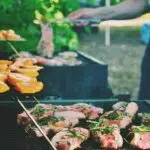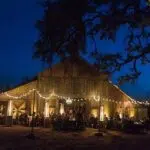Grilling equipment for outdoor events plays a key role in turning any gathering into a memorable culinary experience. Whether you’re planning a casual cookout, a corporate event, or a large-scale festival, the right gear ensures smooth preparation, consistent cooking, and happy guests. From portable grills to essential tools and safety must-haves, this guide helps event planners and caterers choose equipment that performs well in busy outdoor settings.
Key Takeaways
- Choose the right type of grill—charcoal, gas, pellet, or electric—based on the event size and cooking needs.
- Use essential tools like spatulas, tongs, thermometers, and grill brushes for safety and efficiency.
- Grill covers and proper maintenance protect equipment and extend its lifespan.
- Portable accessories like grill baskets and rotisseries offer more cooking flexibility.
- Design functional grilling stations with good airflow, prep space, and durable materials.
- Incorporate safety checks and guest engagement features to improve the overall event experience.
What Are the Best Types of Grills for Outdoor Feasts?
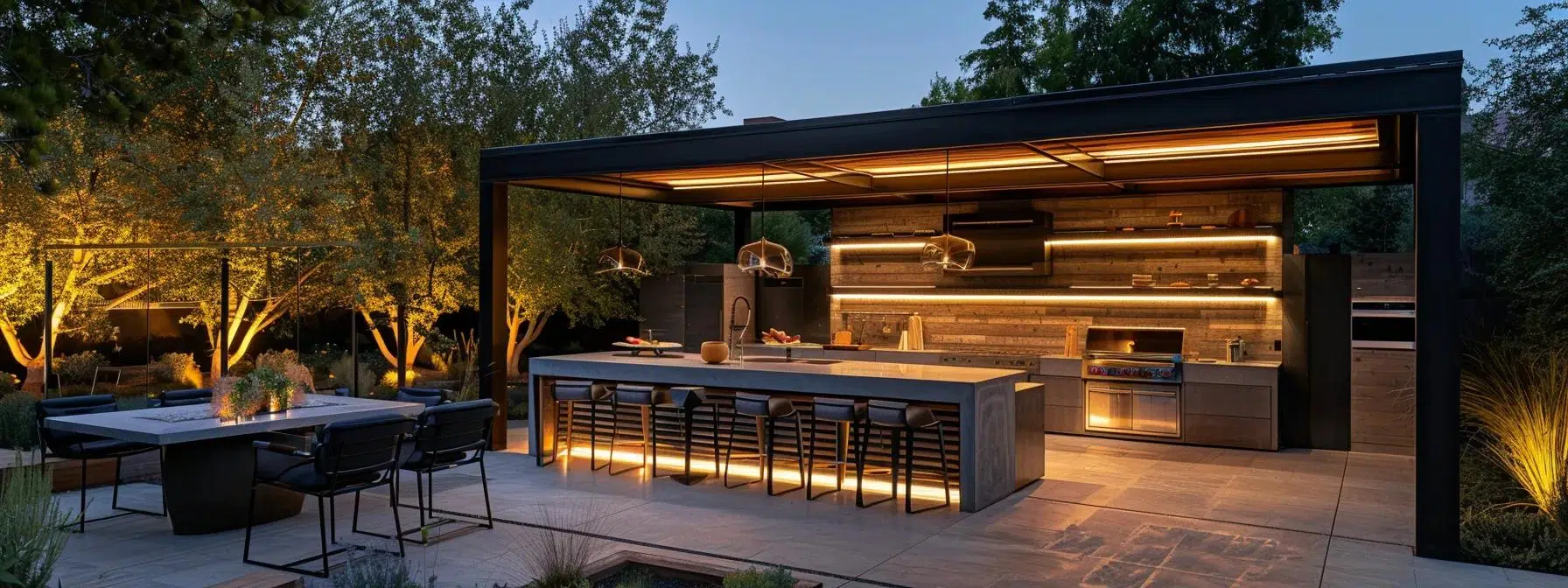
Choosing the right grilling equipment for outdoor events depends on your space, cooking needs, and guest volume. Each grill type has specific strengths, whether you’re serving quick burgers or slow-smoked meats. Here’s a breakdown of the most effective grill options for event settings:
How Do Charcoal Grills Add Flavor at Events?
Charcoal grills use lump charcoal or briquettes to deliver high heat and a bold smoky flavor. Their adjustable air vents give cooks more control over temperature, making them ideal for events that prioritize flavor and traditional grilling experiences. They’re especially popular at festivals, backyard parties, and barbecue-themed gatherings.
Why Are Gas Grills Ideal for High-Volume Cooking?
Gas grills are known for their quick start-up and consistent temperature control, which is essential for time-sensitive or large-scale events. They allow for fast transitions between cooking different items and are perfect for catering teams that need reliability and efficiency.
What Makes Pellet Grills a Good Fit for Slow Cooking?
Pellet grills automatically feed wood pellets to maintain steady heat and smoke, making them ideal for slow-cooked meats like brisket or ribs. Their digital controls help ensure uniform cooking—an advantage when preparing food in advance or during long service hours at an event.
When Should You Use Electric or Kamado Grills?
Electric grills are best suited for smaller events or urban locations with fire restrictions, as they produce minimal smoke and require no open flame. Kamado grills, with their ceramic construction, offer heat retention and cooking flexibility. They’re a solid choice for chefs looking to grill, smoke, or bake in one unit while delivering a premium cooking experience.
What Essential Grilling Accessories Elevate Outdoor Event Cooking?
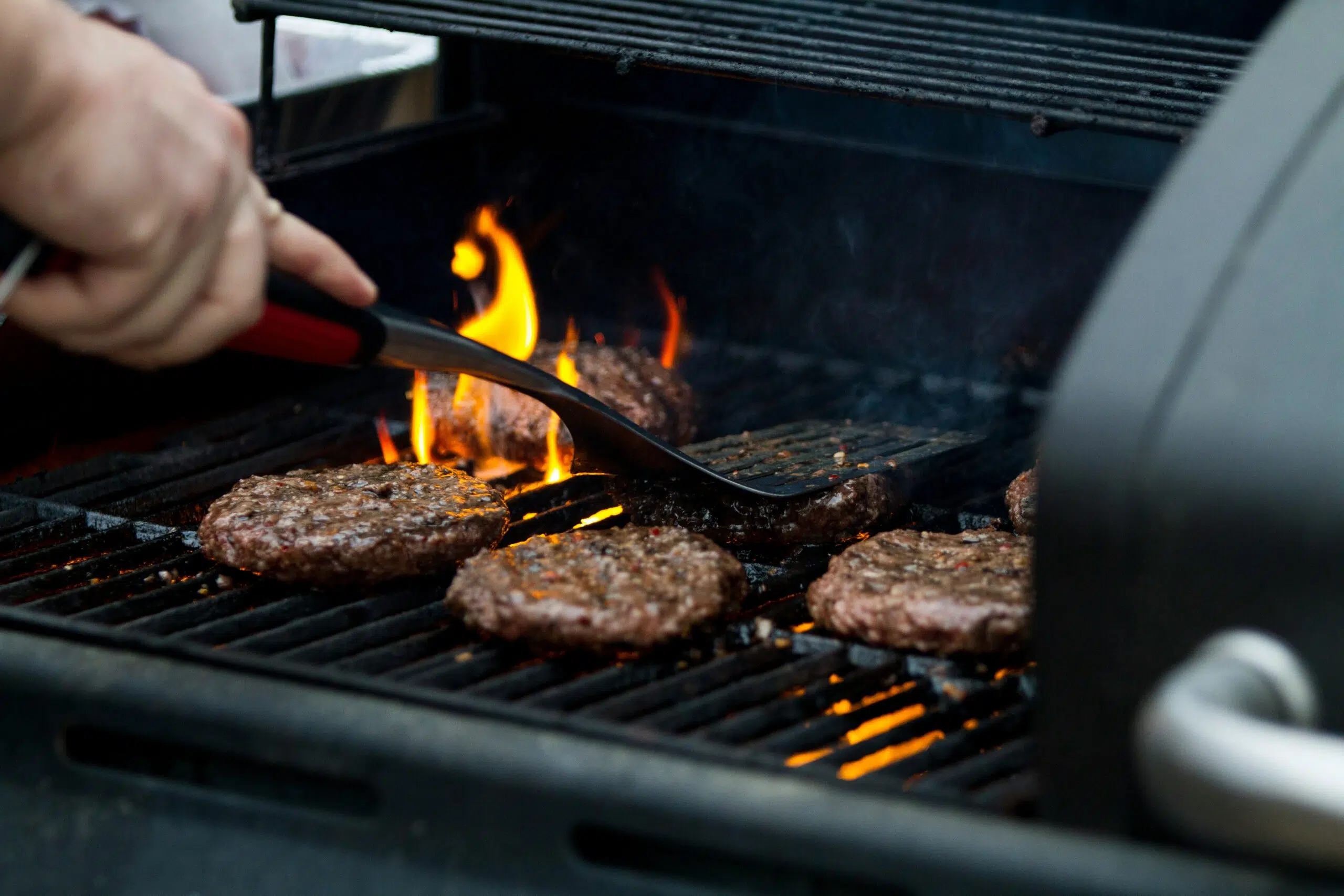
Having the right accessories is just as important as the grill itself—especially at outdoor events where efficiency, safety, and consistency matter. Well-chosen tools streamline setup, improve cooking precision, and help maintain professional standards during service.
Which Grill Tools Are Must-Haves for Outdoor Events?
A complete grill station should include core tools like a durable spatula, long-handled tongs, and a heavy-duty meat scraper. Other essentials include a basting brush, carving fork, and a grill brush for post-cook cleanup. Opt for stainless steel or cast iron tools, which can withstand high heat and heavy use at large events.
How Do Grill Thermometers Support Consistent Cooking?
Grill thermometers help cooks monitor internal food temperatures in real time. Digital probe models are especially useful at events, ensuring that meats are cooked safely and evenly—reducing guesswork and keeping food quality high under pressure.
Why Are Grill Covers Essential for Long-Term Use?
Grill covers protect your grilling equipment from rain, dust, and sun exposure. This is crucial for outdoor events where equipment is transported or stored between uses. A well-fitted, weather-resistant cover prevents rust and keeps your grill in peak condition.
What Are the Advantages of Grill Baskets, Grates, and Rotisserie Attachments?
Grill baskets allow you to cook smaller or delicate items—like vegetables or seafood—without losing them between grates. Additional grates and rotisserie attachments expand your menu, giving you more flexibility to serve different dishes from the same station.
How Do You Design and Equip an Outdoor Kitchen for Entertaining?
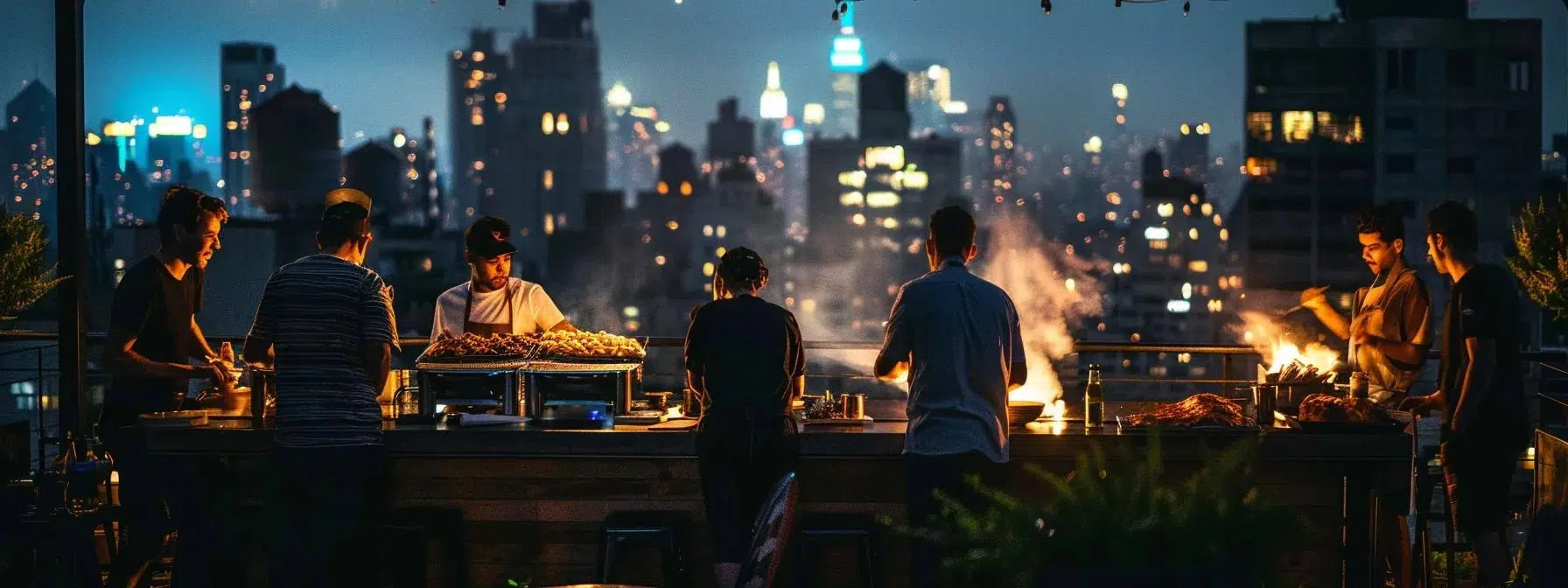
An outdoor kitchen setup for events should go beyond the basics. It must support smooth prep, fast service, and easy cleanup—all while accommodating guest flow and cooking demands. The right layout and equipment can improve efficiency and create a standout guest experience.
What Are the Key Elements of a Functional Outdoor Kitchen for Events?
Focus on mobile, weather-resistant setups that include ample prep space, storage for utensils and fuel, and built-in lighting for evening events. Stainless steel surfaces and heavy-duty counters are ideal for withstanding outdoor conditions and frequent use. Good ventilation and a clear workflow between stations also matter—especially when managing multiple cooks or high-volume service.
Which Equipment Should Be Included in an Event-Friendly Outdoor Kitchen?
Start with a high-performance grill that fits your menu and guest count. Add essentials like prep tables, cold storage (refrigerated drawers or coolers), and a portable sink or handwashing station. Depending on the event size, warming drawers or mobile pizza ovens can help diversify food offerings without slowing down service.
How Can You Make the Grilling Area More Engaging for Guests?
Consider adding guest-facing features like chef-led demos, build-your-own food bars, or a dedicated garnish station. These interactive elements turn your grilling station into a focal point and keep guests involved during prep and cook times—especially effective for weddings, festivals, or private parties.
Why Are Outdoor Refrigeration Units Helpful at Events?
Refrigerated drawers, coolers, or freestanding outdoor fridges help keep ingredients fresh and ready during long service periods. They also reduce back-and-forth trips to indoor kitchens or storage tents, helping staff stay focused and organized during peak hours.
What Are the Best Practices for Hosting Memorable Outdoor Grilling Events?
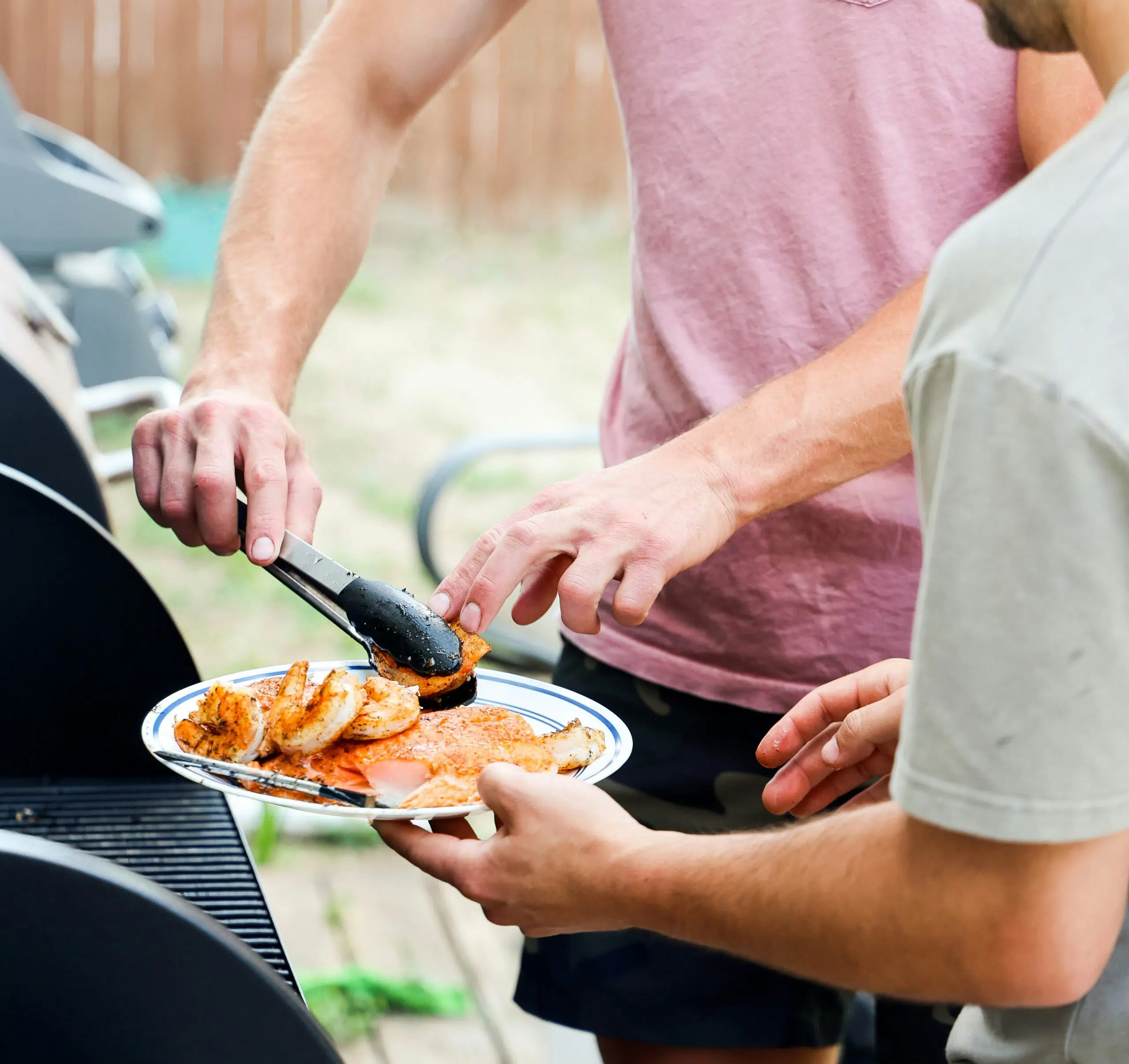
A successful outdoor grilling event goes beyond great food—it requires smart planning, guest engagement, and reliable grilling equipment that can perform under pressure. When executed well, these events become standout experiences that guests remember and talk about.
How Can BBQ Competitions and Tailgate Themes Elevate Your Event?
Incorporating BBQ-style competitions or tailgate-style setups brings energy and friendly competition to your gathering. These formats are great for encouraging guest participation and creating a lively atmosphere. Whether it’s a “best burger” challenge or a cook-off between teams, themed grilling experiences can set your event apart.
Why Is Community Involvement Important in Outdoor Cooking Events?
Involving local chefs, vendors, or grilling experts adds authenticity and local flavor to your event. Hosting collaborative cook-offs or community tastings not only boosts attendance but also encourages meaningful interactions around the grill. These shared moments foster loyalty and make the event feel more personal.
How Can You Use Social Media to Boost Guest Engagement?
Social platforms like Instagram, TikTok, and Facebook are powerful tools to showcase your event in real time. Set up designated photo zones near your grill stations, encourage guests to post with custom hashtags, and feature behind-the-scenes content to build anticipation. User-generated content also helps promote future events organically.
Frequently Asked Questions
What Is the Best Type of Grill for Different Needs?
Charcoal grills offer rich flavor, gas grills provide convenience, pellet grills ensure consistent smoking, and portable models are best for on-the-go events.
What type of grill is best for large outdoor events?
Gas and pellet grills are ideal for large events. They offer consistent heat, fast start-up, and allow for precise cooking over long periods.
How do you maintain grilling equipment during frequent use?
Clean grates and grease trays after each use. Check fuel lines, ignition systems, and protect the grill with a cover between events.
Can I create a full outdoor kitchen on a limited budget?
Yes. Prioritize essential equipment like a grill, prep table, and storage. Opt for modular or portable setups to reduce cost while maintaining efficiency.
What safety measures should I follow during outdoor grilling events?
Place grills in well-ventilated areas, away from flammable materials. Keep a fire extinguisher nearby and inspect equipment before use.
How can grilling stations make an event more engaging?
Grill stations act as interactive food hubs. Guests can watch the cooking process, ask questions, or even customize their plates at live-action food stations.
Do I need special permits to grill at public events?
Depending on your location and event size, you may need permits for open-flame cooking. Check local regulations before planning your setup.
Conclusion
Grilling equipment for outdoor events needs to be reliable, efficient, and adaptable to different cooking scenarios. With the right tools, smart setup, and proper maintenance, you can streamline operations and create a standout experience for guests. Whether you’re managing a backyard party or a large community festival, investing in the right grilling solutions will ensure success from setup to clean-up.

